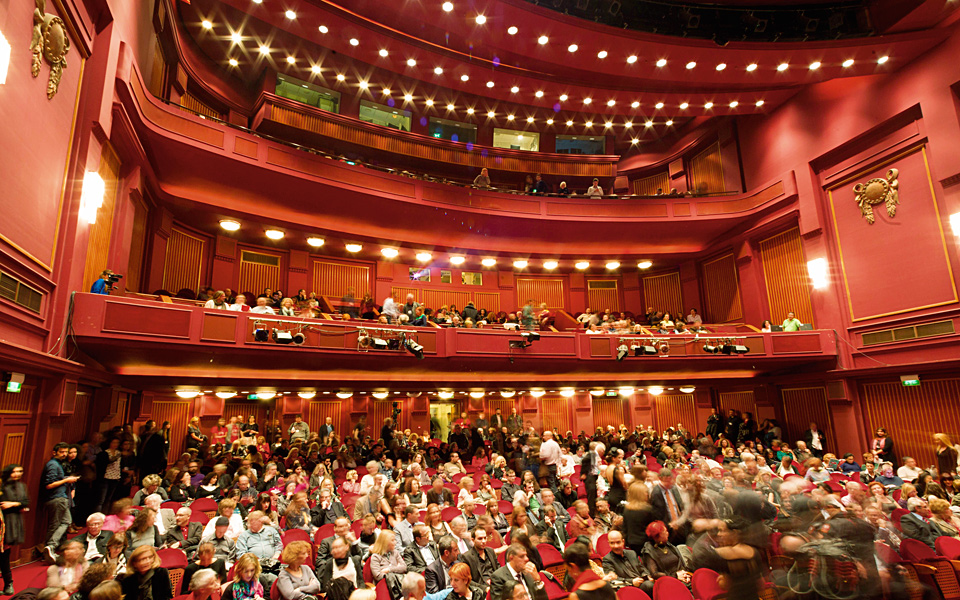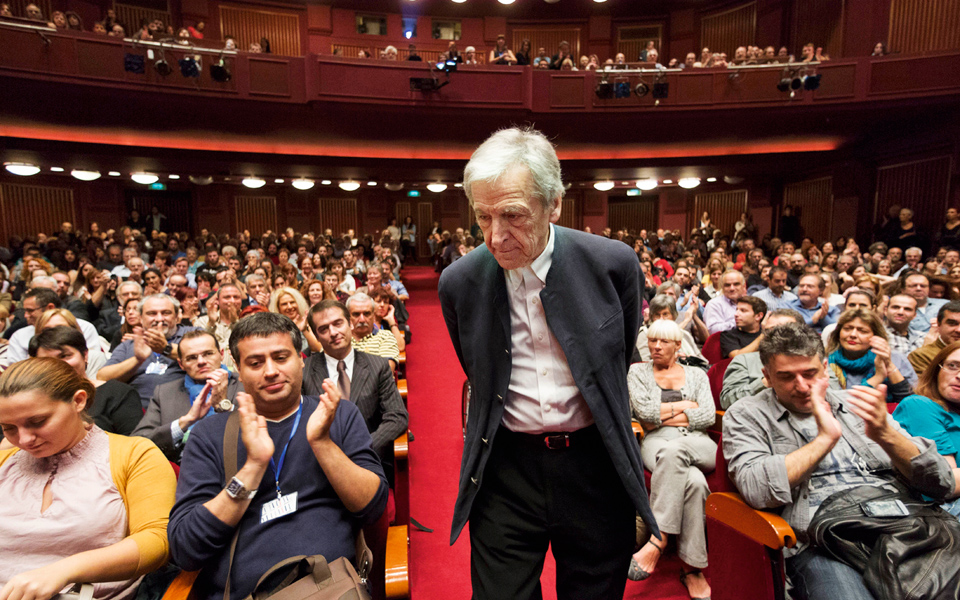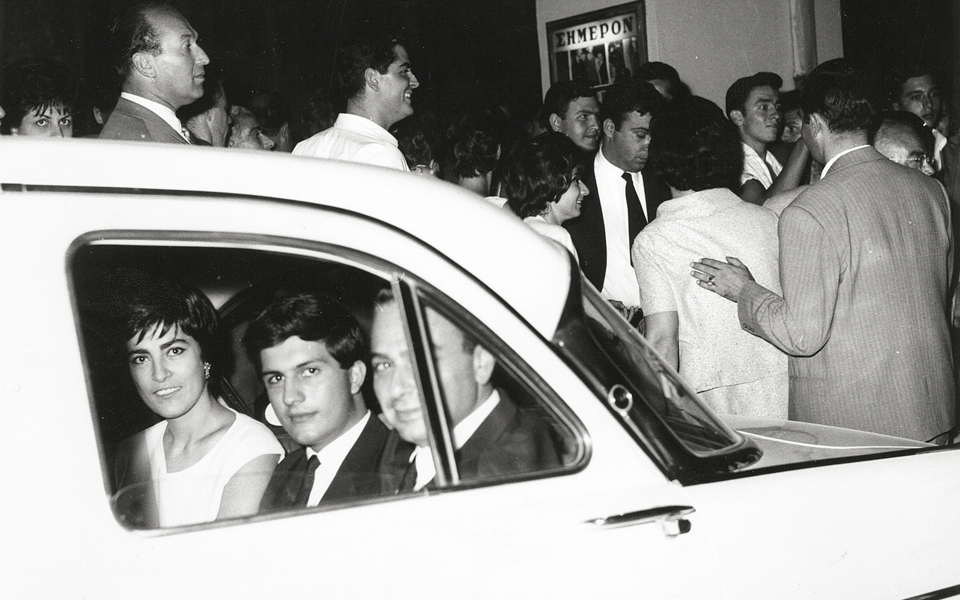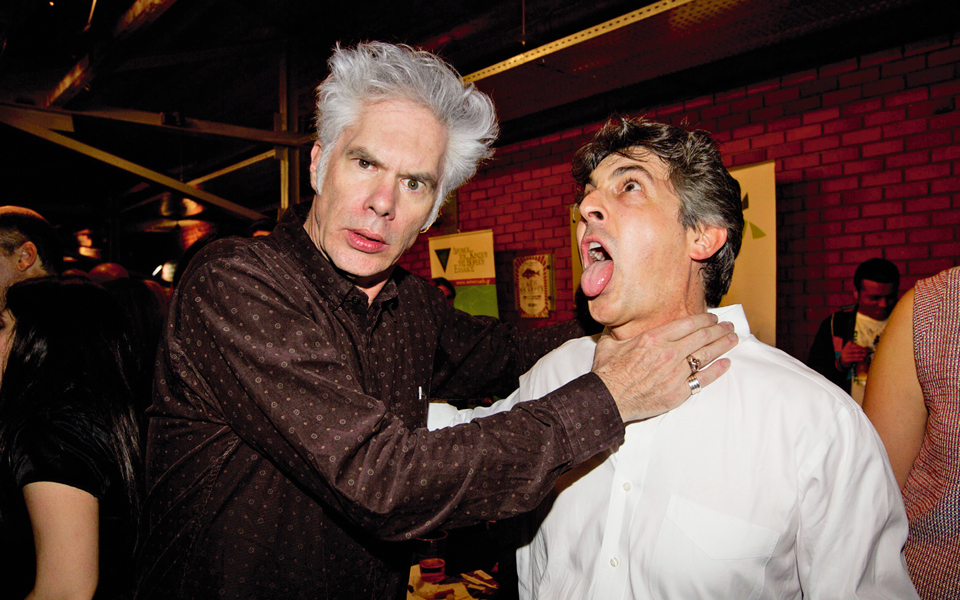Thessaloniki’s Top Chef-Approved Dining Spots
We asked eight of Thessaloniki’s most...

The flagship of the Thessaloniki Film Festival and where the opening and closing ceremonies are held.
© Motion Team, Thessaloniki Film Festival
Standing at the waterfront on a crisp November morning gazing at the Aegean Sea, inhaling its fresh ozonic breeze, almost blinded by the bright sunlight, hoping to drown out a lousy hangover from last night’s partying. Just before stepping into the quiet, embryonic darkness of the cinema, you spot Jim Jarmusch walking nearby, waving his hands as he talks to a group of people, and wonder when you’re going to sober up. The previous day you enjoyed immersing yourself in his latest movie and now, settling into a comfy seat, you are more than ready to travel back into the cinematic galaxy.
During the 10 days of the Thessaloniki International Film Festival (TIFF), held every November, and another 10 in March for the International Documentary Film Festival (TIDFF), the city acquires the air of a film-lover’s wonderland, abuzz with directors, producers, writers, critics and film buffs – receiving as many as 70,000 visitors at a time. People arriving from far and wide go from screening to screening at the festival’s eight venues, as well as attending a multitude of parallel events (from workshops and masterclasses to live music gigs.)

Legendary French actress Catherine Deneuve graced the 40th TIFF with her presence in 1999, as star of Philippe Garrel’s Le Vent de la Nuit.
© Motion Team, Thessaloniki Film Festival

Greek-French director Costa-Gavras at the premiere of his film, Le Capital

Irene Pappas, the “priestess” of Greek cinema, arriving at the 1961 premiere of Eroica
“For 20 days a year, the city acquires the air of a film-lover’s wonderland, abuzz with directors, producers, writers, critics and film buffs.”
With 56 years under its star-studded belt, the film festival, which went international in 1992, has affirmed its place as Southeast Europe’s centrifugal showcase of local and global independent moviemaking. The general director of both festivals, Dimitris Eipides, who has dedicated years of his career to bolstering Greek filmmakers by setting the agenda for themes, styles and marketing, says that the TIFF program is “based exclusively on independent filmmaking, which needs the best possible support, in contrast with the dominating Hollywood film industry.”
The documentary festival, which was the first of its kind in the country, is now among the top three in Europe. With inspiring sections devoted to contemporary themes, human interest stories, sociopolitical and historical issues, as well as the arts, priority is given to local filmmaking. “The Documentary Festival has managed to introduce the Greek audience to a film genre that was previously undervalued,” Eipides says. The event has gained a reputation also for presenting positive networking and marketing opportunities in the industry through its Doc Market, which caters to broadcasters such as the European Documentary Network and welcomes a wide range of professionals from around the world. This is also one of the objectives of the TIFF, which connects feature filmmakers with industry players via its Agora.

American indie king Jim Jarmusch, presenting Only Lovers Left Alive, steals the show in 2014, roughhousing with screenwriter/director Alexander Payne.
© Motion Team, Thessaloniki Film Festival
What makes the festival experience so exceptional is the combination of film and fun – the city may be Greece’s second largest, but as most events are within walking distance of each other, it’s easy to bump into friendly faces with whom you can take advantage of the delightful local gastronomic scene.
Despite the festival committee having to drastically slash their budgets due to the country’s grueling financial crisis, both the TIFF (which was held from November 6-15) and TIDFF (March 18-27, 2016), continue to ride the swell of an affectionate and discriminating global audience and the ongoing support of eminent figures from the independent film scene. Τhis year’s TIFF 56th edition showcased 200 films from 53 countries, while the documentary fest, according to Eipides “continues to evolve in harsh times, setting new goals.”
We asked eight of Thessaloniki’s most...
Where dusk, movement, and memory meet,...
Trace St. Paul the Apostle’s journey...
The Thessaloniki-born winemaker welcomes us to...